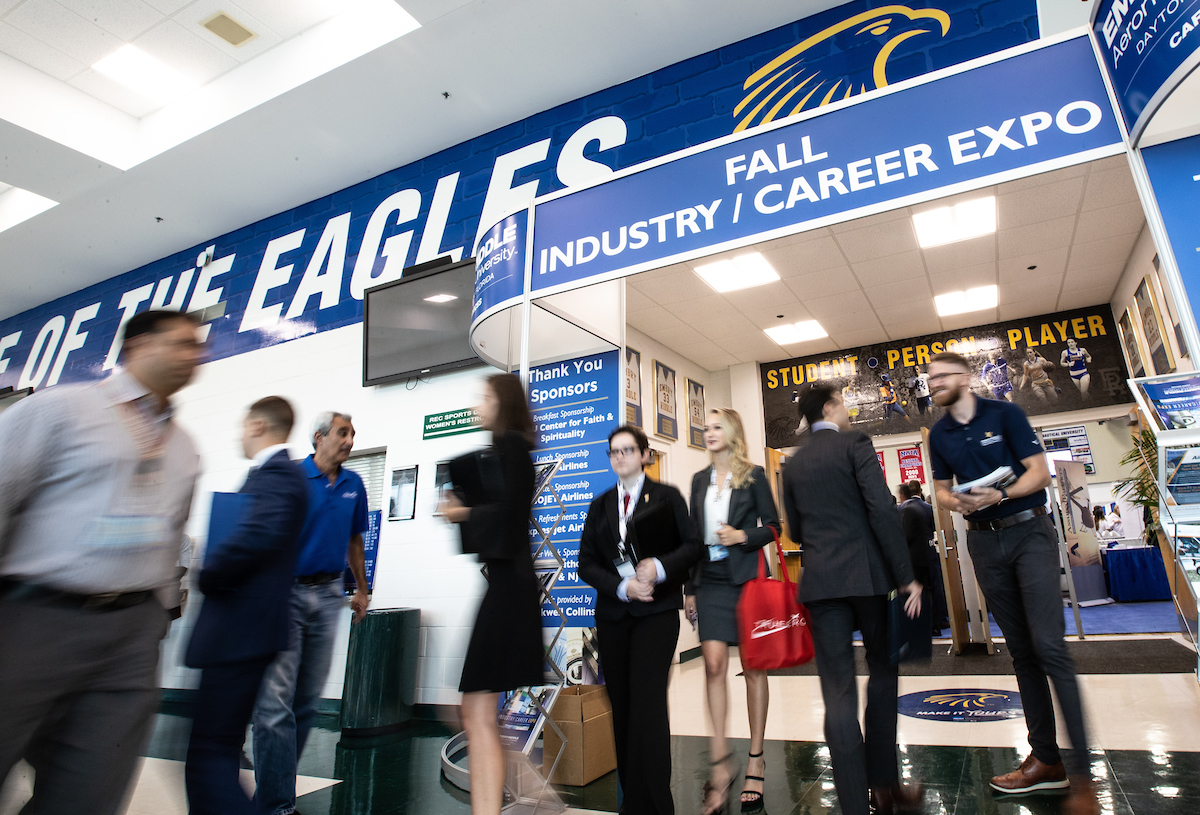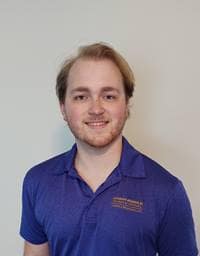Eagle Elevate Program Preps Students for Workforce

Embry-Riddle Aeronautical University senior Cole Holler emerged from his final semester ready to take on the “real world” after completing the Eagle Elevate program’s 20-Day Career Competency Challenge. Through this program, students are provided opportunities to develop their career readiness competencies, as well as their abilities to articulate those competencies clearly in interviews for internships and jobs.

Cole Holler
Holler, who earned a Bachelor of Science in Aerospace Engineering, completed all of the program’s eight digital badges, each symbolizing a skill hiring managers look for in job candidates, according to research conducted by the National Association of Colleges and Employers. The badges include professionalism, collaboration, global fluency and other skills that students demonstrate their mastery of through Learn It, Do It and Show It exercises.
“I wanted to add some real evidence of my skills to my resume — something more than saying, ‘I’m a good leader,’” Holler said. “These badges prove that I possess a wide range of skills necessary to succeed in today’s work environment.”
Learn It
In the Learn It portion of the Eagle Elevate challenge, participants choose to take one Embry-Riddle course that develops a career competency (such as Space Mechanics for critical thinking and Digital Safety Data Analysis for data analysis); attend three or more hours of workshops, trainings or guest speaker events; or learn in another way, then document their process.
Do It
In the Do It portion of the program, participants must complete 45 hours in two or more of the following ways:
- Participate in an alternative spring break
- Complete a capstone project
- Participate in club/organization leadership or activities
- Earn an internship or co-op position
- Be employed on campus
- Participate in research
- Participate in service learning
- Study abroad
- Or, design another way, documenting process
Holler opted for designing a plane with a diverse team from his Preliminary Design course, as well as serving as an assistant for Housing and Residence Life.
Show It
In the Show It portion of the challenge, students must complete a resume that reflects all of their Do It activities. After the resume is complete, they must respond to an interview question related to their competency, summarizing their experience.
Looking back, Holler said he would recommend the program to his peers partly because of how it helped him internalize what his college experiences had taught him. Most importantly, though, he added, the program taught him how to use those experiences to pursue his dream career in the aviation-defense industry.
